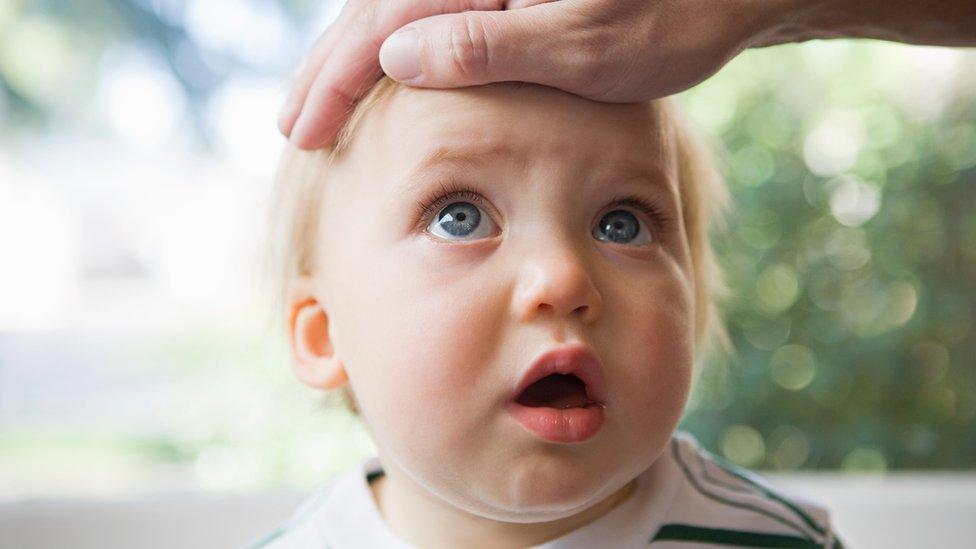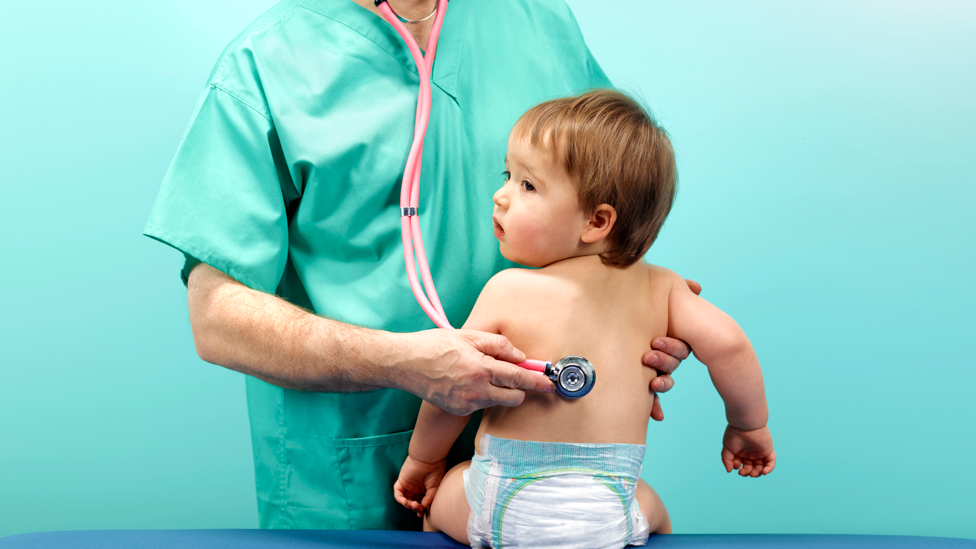Whooping cough: Cases up again as five infant deaths reported
- Published

Five babies have died from whooping cough as cases continue to rise in England, health officials have announced.
The UK Health Security Agency (UKHSA) reported 1,319 cases in England in March, after just over 900 in February, making the 2024 total nearly 2,800.
It fears this year could see lots of the bacterial infection. The last peak year, 2016, had 5,949 cases in England.
The infection can be particularly serious for babies and infants.
Half of cases seen so far this year have been in the under-15s, with the highest rates in babies under three months of age.
The five babies who died this year were all under three months old. These are the first deaths since 2019.
Other parts of the UK and Europe are also seeing a rising number of cases.
Why are cases rising?
Known as pertussis or "100-day cough", the infection is a cyclical disease with peaks seen every three to five years.
UKHSA has said a steady decline in uptake of the vaccine and the very low numbers seen during the pandemic, as happened with other infections because of restrictions and public behaviour, were both factors in the rise in cases.
The agency said a peak year was therefore overdue.
In September 2023, the number of two-year-olds who completed their routine six-in-one vaccinations, which includes protection against pertussis, was 92.9%, compared with 96.3% in March 2014.
Uptake of the maternal pertussis vaccine, offered to women in every pregnancy, also dropped - from more than 70% in September 2017 to about 58% in September 2023.
Getting vaccinated while pregnant provides some protection to babies in the first months of life.

Read more on whooping cough

What is whooping cough?
The first signs are similar to a cold, with a runny nose and sore throat.
After about a week, the infection can develop into coughing bouts that last a few minutes and are typically worse at night.
Young babies may make a distinctive "whoop" or have difficulty breathing after a bout of coughing.
The bacterial infections spreads through coughs and sneezes.
People of all ages can catch whooping cough, but it is most serious for young children and babies.
What can people do to protect themselves?
Health experts are urging those not vaccinated to come forward to get the jab.
Children who have not been vaccinated can still get the jab up to the age of 10.
Vaccination does not provide lifelong immunity against the disease, but subsequent infections tend to be mild.
Dr Gayatri Amirthalingam, from UKHSA, said: "Vaccination remains the best defence against whooping cough and it is vital that pregnant women and young infants receive their vaccines at the right time.
"Whooping cough can affect people of all ages, but for very young babies it can be extremely serious.
"Our thoughts and condolences are with those families who have so tragically lost their baby."
Prof Kamila Hawthorne, who chairs the Royal College of GPs, said: "It's highly concerning that such a high number of whooping cough cases have been confirmed.
"While whooping cough will be an unpleasant and uncomfortable experience for most patients, causing restless nights and leaving those affected with a shortness of breath, for some, it can be far more serious."
Related topics
- Published23 January 2024
